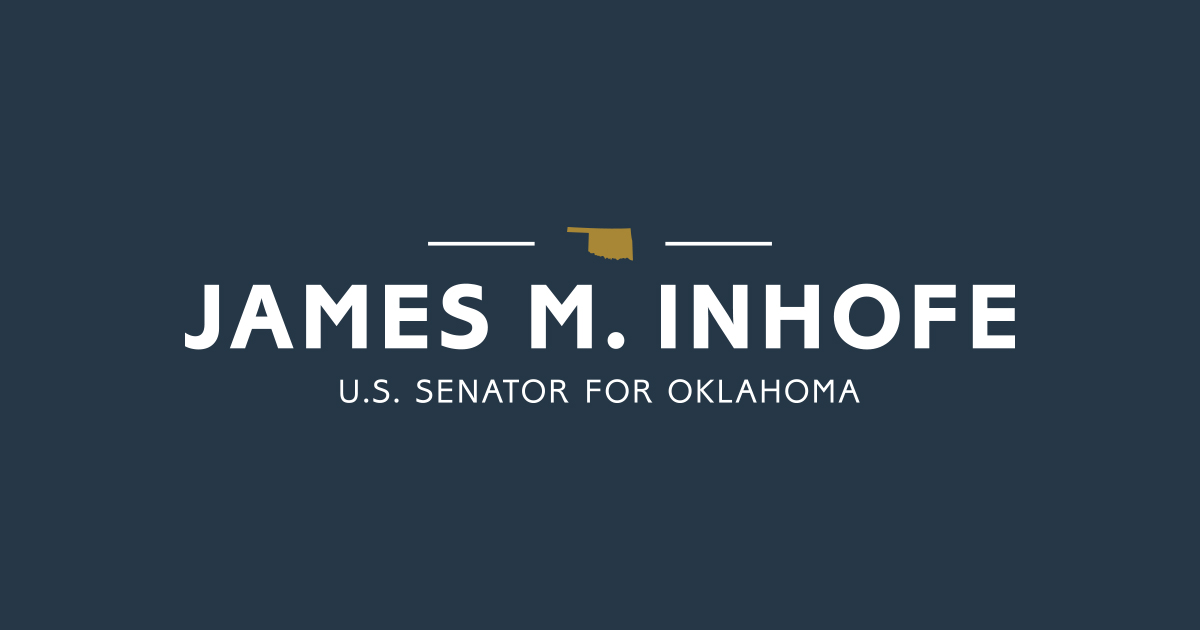Source: United States Senator for Oklahoma James Inhofe
Yesterday, U.S. Sen. Jim Inhofe (R-Okla.), member of the Small Business and Entrepreneurship Committee, questioned witnesses at a hearing to review Small Business Administration (SBA) Entrepreneurial Development Programs and Initiatives.
Witnesses included: Mr. Mark Madrid, Associate Administrator, U.S. Small Business Administration Office of Entrepreneurial Development; Mr. C.E. “Tee” Rowe, President and CEO, America’s SBDC; Ms. Corrine Hodges, CEO, Association of Women’s Business Centers; Mr. Michael Hendrix, Senior Fellow, Manhattan Institute; Mr. Chris Edwards, Director of Tax Policy Studies, CATO Institute; Ms. Bridget Weston, CEO, SCORE; and Ms. Hannah Cox, Brand Ambassador, Co-Founder and Host, Foundation for Economic Education, BASEDPolitics.
Inhofe: Well, thank you very much, Mr. Chairman, I appreciate that. It was very important for me to get over and ask a couple of questions. Ironically, I got here just in time to hear Ms. Cox. I’m not sure I need to do that now. However, I just want make sure to emphasize the problems we’re having in my state of Oklahoma and other states are having the same types of problems. We talk about inflation up to seven percent – the highest it’s been in 40 years. The small businesses are having the effect of this. Is there anything that you can add, I actually had two questions I wanted to ask you. How would the radical spending plans only serve to hurt small businesses and hinder entrepreneurship?
Cox: Thank you, Senator. It’s important to remember that every dollar spent by the government is dollars that entrepreneurs don’t get to keep in their pocket that they can actually invest into their own companies, hire more people with, save. So, we continue to see these hurt small businesses across the country; they are demanding relief. I talked to small businesses and entrepreneurs across this country, and one of the main things that they say they need are tax cuts, or at the very least, a simplification of the tax codes, so they don’t have to spend so much time jumping through hoops to meet compliance from the government. So, I would suggest that the government look into those two items first and foremost. Secondarily, I suggest they quit spending money recklessly and give it back to the actual entrepreneurs who know on the ground how to invest the dollars better than the federal government could from so far away.
Inhofe: And, I think that pretty much addresses the second question I would ask on how can this administration advocate for policies that actually help benefit the playing field and ensure all entrepreneurs have a fair shot?
Cox: Yes, I would love to see an actual review of the regulation in play in various industries. I think it depends on which industry we’re looking at, but if you examine any given one at a certain moment, you’re bound to find a number of ways that the federal government is preventing entrepreneurship and hurting small businesses. I’ll use one bill that comes to mind within the agriculture industry right now. The PRIME Act is seeking to make it where small farmers can barely just sell their meat without having to jump through the hoops the federal government has laid out for them to process their cows. That’s a ridiculous burden on them that actually makes them lose money and have to kill their cows and waste product. That kind of thing can be found in virtually every industry in our economy where the federal government has come in and put in silly requirements where people have to jump through merely just to do their jobs. So, I’d love to see the Biden administration actually go through and figure out what those regulations are and start to remove some of these things so people can just get back to work.
Inhofe: That’s particularly a great statement to make for my state of Oklahoma because that’s a problem I have heard from other people, and it is serious. So, I think we understand that these are serious problems that small states, ag states, are having problems with. That’s what this is all about, we have these people here, your own problems, and I appreciate those comments very much.
That’s primarily the message I wanted to have, Mr. Chairman, and both of you, I appreciate you. Thank you.
